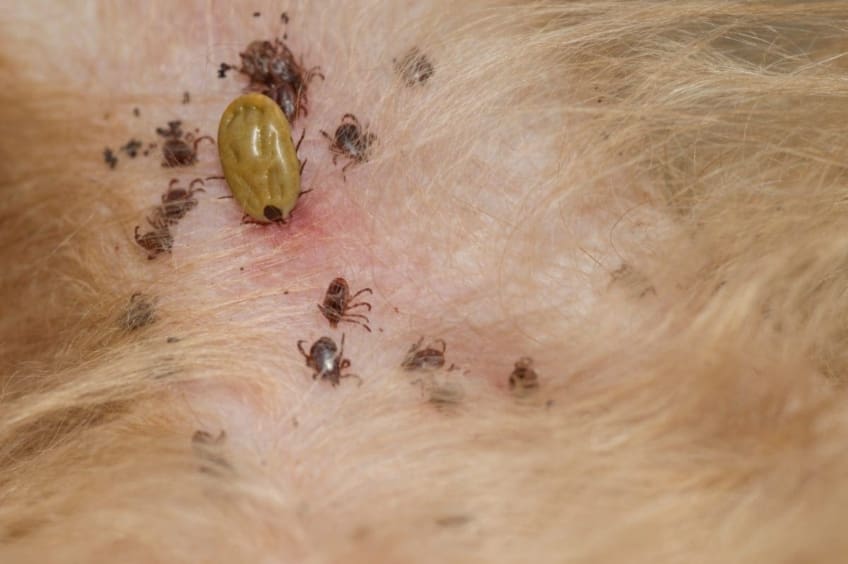
A dog may be man’s best friend. However, household pets of all types can carry diseases or parasites (organisms living inside or on another organism) that make people sick. This includes dogs, cats, birds, and reptiles. It also includes animals that people turn into pets, such as farm animals (pigs, chickens). Symptoms might include fever, muscle aches, and diarrhea. The good news is that this rarely happens. Most pet-to-people diseases can be avoided by following a few common-sense rules.
Path to improved wellness
The most important rule is to avoid touching animal waste (urine or stool). This includes objects contaminated by the waste products. For example, wash your hands after cleaning a soiled carpet (including cleaning under your fingernails) or picking up stool.
Don’t let small children play in uncovered sandboxes that might be used as litter boxes by neighborhood cats. Keep your children out of the dirt in parks that may be used by local dogs.
Another important tip is to avoid oral contact with your pet. Don’t share food or kiss your pet on the mouth. Pregnant women and people who have weakened immune systems should never clean out cat litter boxes or handle cat feces. They can be exposed to a disease called toxoplasmosis. Toxoplasmosis can cause severe birth defects in an unborn child if the mother is infected during pregnancy. Anyone cleaning out a litter box should wash his or her hands thoroughly afterward.
Have your pet dewormed and vaccinated exactly the way your vet recommends. This keeps your pet healthy and decreases your risk of getting parasites and diseases from your pet. Control fleas and ticks on your pets and in your house. Fleas and ticks can make both you and your pet miserable. It can make you sick.
Don’t feed raw meat to your pets. And don’t let your cat or dog hunt and eat wild animals. This is how cats get the toxoplasmosis parasite. Keep your pets away from wild animals or stray pets (which may be unvaccinated or sick).
Things to consider
Disease exposure from reptiles is serious. Reptiles include lizards, snakes, and turtles. They carry bacteria (germs) that can make people sick. They also transmit salmonella, a bacterial infection. If you have a pet reptile, you should wash your hands after handling the pet or anything in its cage. Frequently wash the cage, the area around the cage, and any items used to clean the cage. Children younger than age 5 and people who have weakened immune systems should not handle reptiles or items from the cage.
It’s a good idea to watch toddlers while they play with pets. Small children are more likely to get infections from pets. That’s because children crawl around on the floor with the animals, kiss them, put their fingers in the pets’ mouths, and then put their dirty fingers in their own mouths.
Small children are also more likely to be bitten or scratched by pets. Teach your children how to treat family pets and to avoid strange pets. It may be best to wait until children are past the toddler stage to get a pet.
Children younger than 5 years of age should also avoid contact with:
- Animals at petting zoos and farms.
- Baby chicks.
- Baby ducks.
- Amphibians (such as frogs, toads, and salamanders).
- Reptiles (such as turtles, lizards, and snakes).
If you enjoy the outdoors, don’t treat wildlife like pets. Deer and some wild animals may seem cute, but they carry germs, viruses, and parasites. Deer and deer mice carry ticks that cause Lyme disease. Some wild animals carry rabies.
If you’re planning to get a pet, you might consider adopting an older cat or dog. This way, you can avoid the housebreaking stage and its problems. Older pets that have been well cared for are less likely to spread disease or become ill themselves. Do not take in sick pets or strays. They carry even more risk of making you or your children sick.
Questions to ask your doctor
- Can a parasite cause death in people and pets?
- Can human disease from a pet parasite be treated with medicine?
- Do some pet parasites and diseases result in life-long health issues for humans?
Resources
Centers for Disease Control and Prevention: Animals (Zoonotic)
National Institutes of Health, MedlinePlus: Animal Diseases and Your Health
![]()
Copyright © American Academy of Family Physicians
This information provides a general overview and may not apply to everyone. Talk to your family doctor to find out if this information applies to you and to get more information on this subject.











